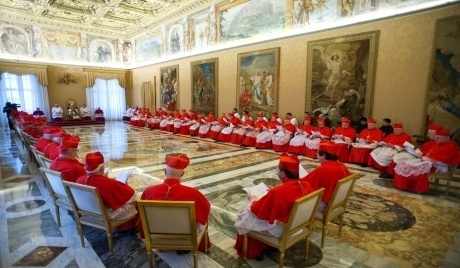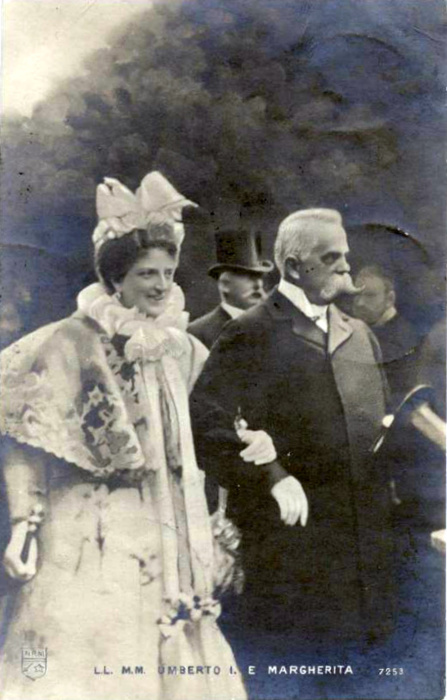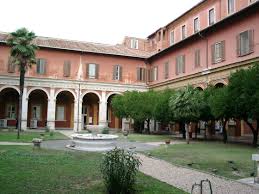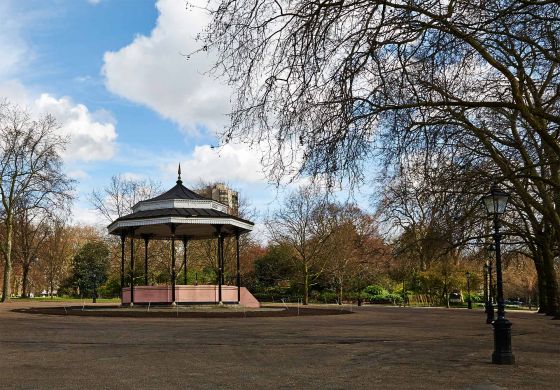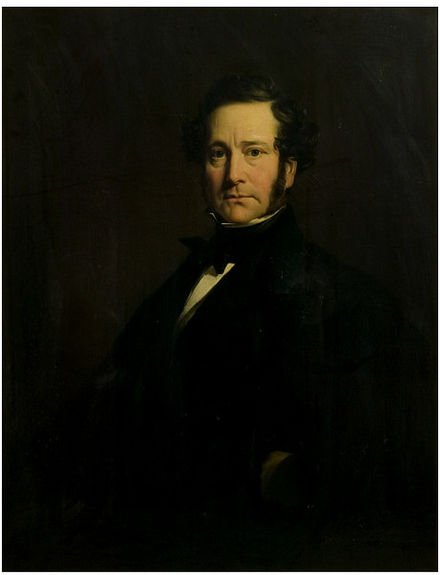This was the jubilee to celebrate fifty years of Pope Pius X being a priest. In family terms, the baton has been passed from Mgr Henry O’Bryen as a papal chaplain, to Mgr Manuel Bidwell; though they weren’t related to each other.
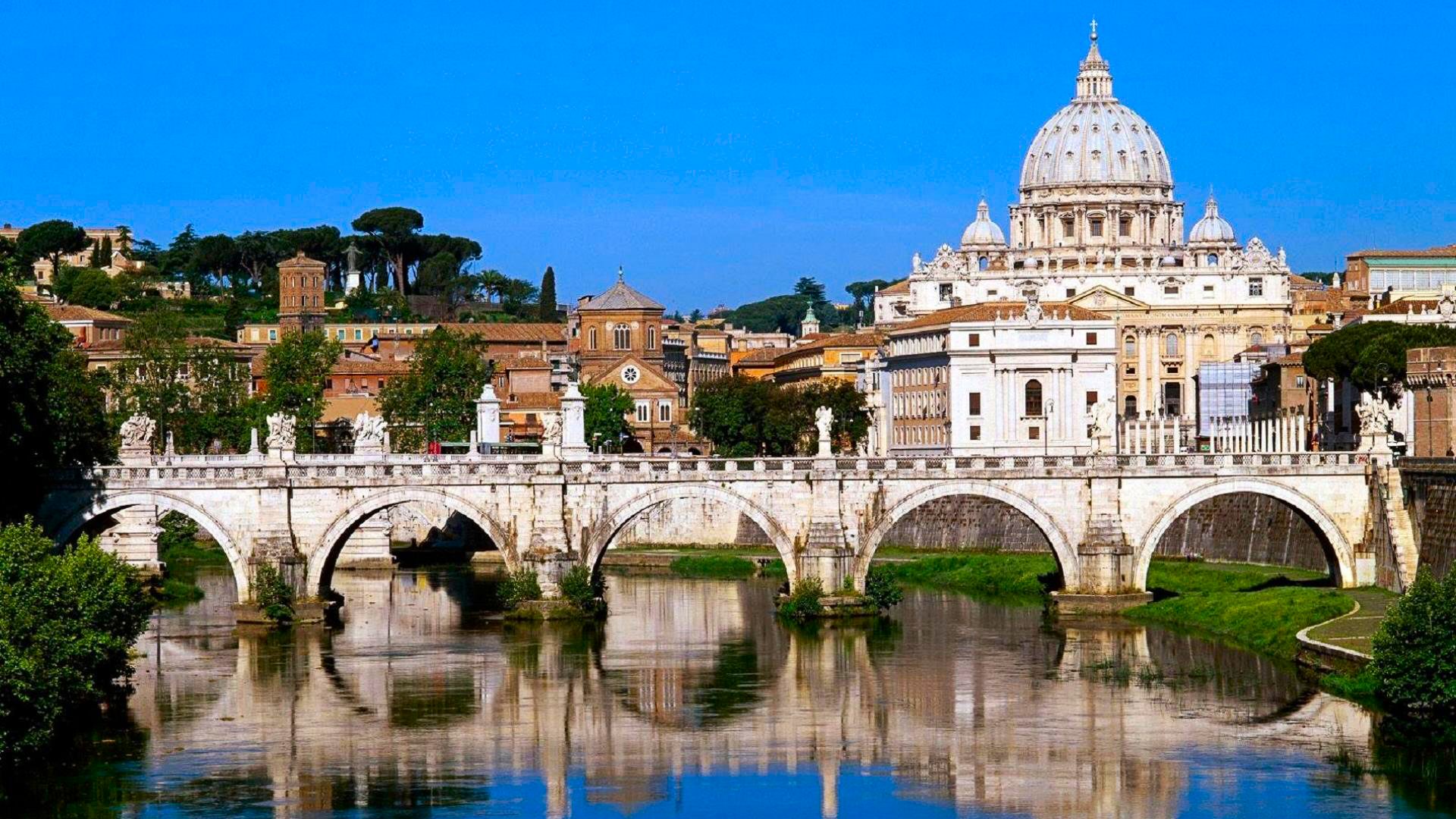
Sunday, November 22, 1908.
THE JUBILEE FUNCTION IN ST. PETER’S.
Judging by some appearances, there were many pilgrims in Rome who did not go to bed at all last Sunday night ; for long before the dawn, indeed as early as four o’clock, a very early newspaper bird found a group of over a hundred of them waiting patiently outside the doors of St. Peter’s. Alas, that such patience should have been utterly without its reward, for some two hours later a whole regiment of soldiers marched sleepily and silently into the great Piazza, mercifully dislodging the peaceable enemy and making it take up its position at the foot of the steps leading to the Basilica, where it was hardly better off than the thousands and tens of thousands that arrived between six and seven o’clock. During the hours of waiting they had the satisfaction of watching the Italian troops make a series of wonderful evolutions for some recondite object, probably known to the commanding officers ; but shortly before eight the first chapter of the waiting closed, when those possessing tickets were allow to pass through a hedge of bayonets, and to enter the Basilica. Here it was warmer and more interesting.
The immense interior was decorated in festive damask ; a broad space, secured by a wooden barrier and by a double line of the Palatine Guard, was left open in the centre, and two hours more passed quietly and pleasantly enough, in spite of the crush (and the crush was in parts so thick that there were a few cases of fainting), and the long standing—for it was impossible to plant even a tiny campstool anywhere. It is estimated that St. Peter’s when quite full will “stand” about ninety-thousand persons, but last Monday the space between the chapel of the Blessed Sacrament and that of the Pieta was curtained off; so was the opening all down the centre, and the free wide circle round the papal altar, and the entire apse reserved for the dignitaries, and the tribunes, which meant that a third of the available space was unavailable for the eager multitude ; and so there must have been between fifty and sixty thousand persons present when the trumpets rang out the glad news that the procession, till now hidden by the acres of curtain on the right, had begun to move, and the first notes of the Sistine choir were heard, faintly at first, but growing louder and stronger each moment until even those in the far distance in the transepts could distinguish the “Ecce Sacerdos Magnus !”
It had been announced very sternly that on this occasion there were to be no tribunes except those reserved for the Pope’s Family, Royalty, the Roman Patriciate, the Knights of Malta, and the Diplomatic Corps. But there were vacant spaces under the two choirs and in a few other places which afforded a little room for benches, and so a couple of hundred persons did after all secure a special position. The tribune next to the throne, divided only by an invisible barrier from that of the Roman Patriciate (which was full), was occupied by the Holy Father’s brother, his three sisters, his nephew Mgr. Parolin, and his niece ; the Grand Master of the Knights of Malta with nearly all the chief dignitaries left no vacant places in the tribune reserved for them ; the Royal tribune held the Princess Matilda of Saxony, and the Grand Duchess Xenia of Russia with her consort the Grand Duke Michaivich and their seven children ;
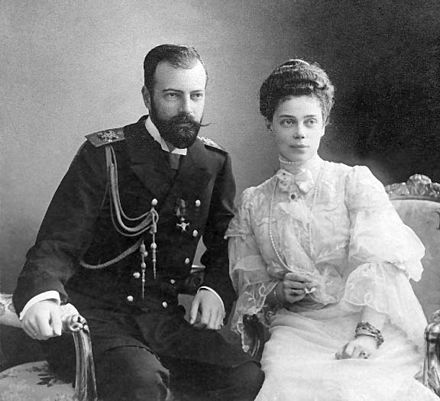
a score or so of Extraordinary Embassies and Missions sent by Emperors, Kings, Queens, and Presidents to represent them at the Pope’s Jubilee had their own place of distinction, as had the entire diplomatic corps accredited to the Holy See, and all these tribunes glistened with brilliant uniforms and flashing decorations. This time also a position of distinction was reserved for the Order of the Holy Sepulchre, which was represented by Count Fabio Fani, Procurator of the Patriarch of Jerusalem, for the Knights residing in Rome, Sir Thomas H. Grattan Esmonde, M.P., representative of the Order in Ireland, and Mgr. Rivelli, a Knight Commander of the Order. Among the English-speaking Chamberlains on duty at the tribunes were the Marquis MacSwiney, Colonel Bernard, Chev. De Falloux Schuster, and Comm. Christmas, while among the others who took part in the historic function were Mr. Stuart A. Coats, the Hon. A. Wilmot and Captain Bartle Teeling. Mgr. Bidwell was one of the four Chamberlains in attendance on the Holy Father.
THE PROCESSION.
Long before the Holy Father himself appeared before the expectant gaze of the multitude the procession was moving rhythmically up the middle of the basilica. A Pontifical Master of Ceremonies led it, followed immediately by Papal Chamberlains of Sword and Cape, both private and honorary, the Procurators di Collegio, the Apostolic Preacher with the Confessor of the Pontifical Household, the Procurators General of the Mendicant Orders, the Bussolanti, the Custodian of the Tiaras flanked by two Chamberlains bearing the tiaras, the Private Chaplains bearing the mitres, two mace-bearers with silver maces, the Assistants of the Chamber, the Private Chaplains, the Private Clerics, the Honorary Chaplains, Consistorial Advocates, the supernumerary Honorary and Private Chamberlains, the Auditors of the Rota, the Master of the Apostolic Palaces, Prince Ruspoli, Master of the Sacred Hospice, Mgr. Bressan with the ordinary.mitre of the Holy Father, the thurifer, the Papal Cross borne by Mgr. Pescini, surrounded by seven clerics, Mgr. Sincero, Auditor of the Rota, and Apostolic Sub-deacon, between the Greek deacon and subdeacon of the Mass, the Penitentiaries of St. Peter’s preceded by clerics bearing the Verga decorated with flowers, the Abbots General of the Religious Orders and the Abbots nullius, the Bishops, Arch-bishops, and Patriarchs, a long line of prelates of the Latin and Oriental Churches numbering almost three hundred, the Sacred College of Cardinals, represented by thirty-five of its members, and then the Pope—  borne aloft over the heads of the people on the sedia gestatoria carried securely on the shoulders of twelve stalwart pontifical chair-bearers, with two Chamberlains on either side bolding the long flabellm, and surrounded by the Commandant and the officers of the Swiss Guard, and by four guards bearing the four great medimval swords that symbolise the four cantons of Switzerland, by Prince Rospigliosi, Commandant of the Noble Guard with his officers, by Count Pecci, Commandant of the Palatine Guard, and by numerous mace-bearers and functionaries, while the Marquis Clemente Sacchetti, charged as Foriere Maggiore with the duty of watching over the moving throne, walked immediately behind it, and before Cardinals Segna and Della Volpe, who were to assist the Pope at the Mass. The second part of he procession consists of the Dean of the Rota, the two Grand Chamberlains on duty, the Pope’s Physician, the Majordomo, the Protonotaries Apostolic, and the Regent of the Apostolic Chancellery, and then the Generals of the Religious Orders and Congregations.
borne aloft over the heads of the people on the sedia gestatoria carried securely on the shoulders of twelve stalwart pontifical chair-bearers, with two Chamberlains on either side bolding the long flabellm, and surrounded by the Commandant and the officers of the Swiss Guard, and by four guards bearing the four great medimval swords that symbolise the four cantons of Switzerland, by Prince Rospigliosi, Commandant of the Noble Guard with his officers, by Count Pecci, Commandant of the Palatine Guard, and by numerous mace-bearers and functionaries, while the Marquis Clemente Sacchetti, charged as Foriere Maggiore with the duty of watching over the moving throne, walked immediately behind it, and before Cardinals Segna and Della Volpe, who were to assist the Pope at the Mass. The second part of he procession consists of the Dean of the Rota, the two Grand Chamberlains on duty, the Pope’s Physician, the Majordomo, the Protonotaries Apostolic, and the Regent of the Apostolic Chancellery, and then the Generals of the Religious Orders and Congregations.
THE MASS.
There is hardly a sound to be heard throughout the basilica as the Pontiff passes along between the crowds, blessing on either side, but almost everybody present seems to be waving silently a white handkerchief— a curiously impressive sight to one looking down on it from above, and noting how in a moment the black sea of heads is transformed into a fluttering white ocean. Only as the Pope reaches the section reserved for the pilgrims from the Venetian province, where perhaps he bends a little more towards the people as he forms again and again the sign of the cross with his hand, he hears a low murmur from the proud and affectionate people there asking God to bless him, and he is for a moment visibly moved.
All had taken their places in the sanctuary when the “sedia gestatoria” reaches it, is softly lowered to the ground, and the Pope advances to one of the two thrones where he receives the obedience of the Cardinals, and some Archbishops, Bishops and Abbots. Then he is vested for the Mass while “Nones” [part of the Divine Office] is being sung. He assumes the pontifical vestment known as the ” fanone”, and the Mass is begun, his Holiness being assisted by Cardinal, Serafino Vannutelli, as assistant priest, by Cardinals Segna and Dela Volpe as assistant deacons, and by Cardinal Cagiano as ministering deacon. The ceremonies of the Mass were the same as on all similar occasions, and the music was rendered by two choirs, the Sistine under Perosi, and a Gregorian made up chiefly of students under Mgr. Rella. At the end of the ceremony Cardinal Rampolla fulfilled the ancient custom of offering the celebrant a purse containing 25 giulii (about half-a-sovereign) ” for a Mass well sung.” Everybody from the altar to the door tried hard, but not always effectually, to kneel as the Pope intoned his blessing. The procession was formed again, and passed back by the path it had come, and shortly the red curtains in front of the Chapel of the Pieta hid the Jubilarian Pontiff from the people.
The bleak and wintry weather which filled the rest of the day in Rome did not prevent the multitudes from coming out after dusk to witness the illuminations of the facade and colonnade of St. Peter’s, of all the houses in the Borgo, of all the churches and religious houses of Rome, and of a great number of the private dwellings ; but it did prevent the sight that was most eagerly looked forward to, that of the illumination of St. Peter’s dome, an event not witnessed since ” black ’70.” [ The fall of Rome to the Italians in 1870] However, the disappointment was remedied on Thursday, when the rain stopped for half an hour as if on purpose to gladden the multitude with the wonderful sight.

The above text was found on p.17, 28th November 1908 in “The Tablet: The International Catholic News Weekly.” Reproduced with kind permission of the Publisher. The Tablet can be found at http://www.thetablet.co.uk .

